-
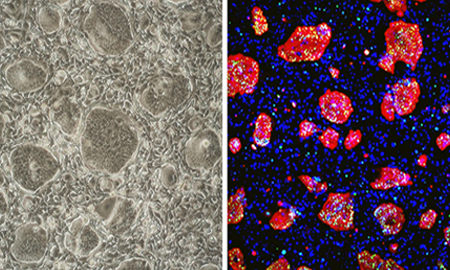
Isolation and expansion of adult stem cells
Project introduction
Stem cells are the core of regenerative medicine. Adult stem cells are a kind of stem cells existing in adult individuals, which have the potential of self-renewal and differentiation. Therefore, when it is used for the treatment of a damaging disease, the corresponding tissue can be regenerated, the tissue damage can be repaired, and the tissue function can be restored. The isolation and expansion of adult stem cells is a prerequisite for their application.Scientists have developed various techniques for isolation and expansion of adult stem cells in vitro, which can extract and expan high quality stem cells from different types of tissues (lung, kidney, uterus, liver, kidney, prostate, gastrointestinal tract and pancreas), and gradually establish an industrial production system of adult stem cells in accordance with GMP specifications to produce corresponding cell preparation products to provide strong support for clinical application of regenerative medicine.
-
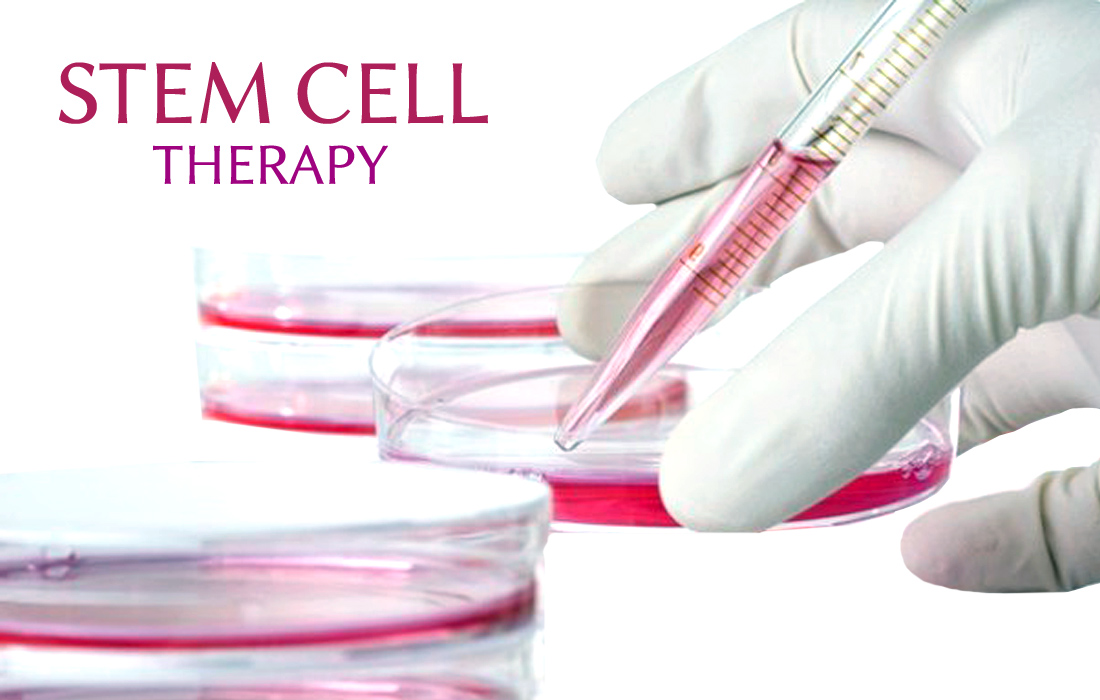
Stem cell therapy
Project introduction
With the process of urbanization, industrialization and population aging, chronic diseases have become a major public health problem affecting China's economic and social development, seriously jeopardizing the people's health, economic level and quality of life. Injurious and degenerative diseases are important components of chronic diseases. Stem cells have broad prospects in the treatment of injurious and degenerative diseases due to their regenerative tissue structure characteristics. In the past ten years, a lot of breakthroughs have been made in stem cell biology research, making stem cell therapy for various injurious and degenerative diseases gradually become a reality, which is expected to set off a new medical revolution. Compared with other types of stem cells, adult stem cells have unique advantages, no ethical problems, and are easy to acquire and cultivate. Based on the breakthroughs in adult stem cell preparation and adult stem cell basic research, Regend’s scientists are committed to developing adult stem cell new drug products, helping patients with chronic and progressive diseases related to various tissues and organs to restore normal tissue physiological structure, improve organ function and quality of life.
-
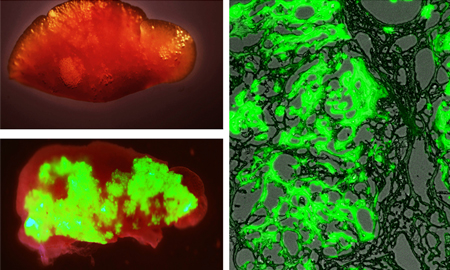
Pulmonary regenerative medicine
Project introduction
The lungs are important organs of the human body. In the process of performing respiratory tasks, it is unavoidable to be exposed to external or internal harmful substances (such as air pollution, tobacco, bacterial viruses or toxic substances in blood), which often lead to large-scale damage of lung tissue, thus leading to acute and chronic lung injury diseases (such as respiratory distress syndrome ARDS, chronic obstructive pulmonary disease COPD, interstitial lung disease ILD and bronchiectasis BE, etc.). At present, there is no effective way to reverse the progress of these diseases. Regend’s scientists are working on innovative research in the fields of lung stem cells, lung organ development, and lung micro-organs, aiming at repairing lung injury caused by lung injury disease, restoring lung function, and exploring new means for the treatment of lung injury disease. At the same time, we are also committed to the development of "super lungs" with antibacterial ability, combined with tissue engineering technology to carry out research on artificial lungs, broadening the application of lung stem cells. At present, some research results have been published in many internationally renowned academic journals such as Nature and Protein and Cell.
-
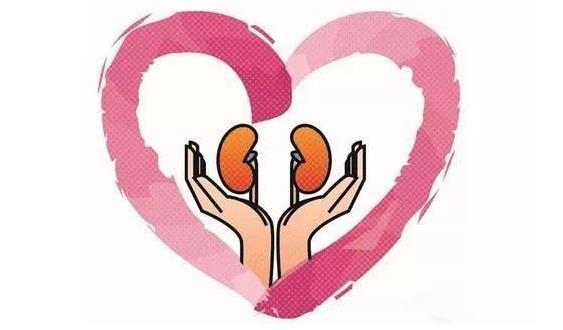
Kidney regenerative medicine
Project introduction
The kidney itself is a kind of human organ with weak regeneration ability. Because of aging, infection, trauma and harmful substances in blood, the kidneys are constantly damaged. The glomerulus responsible for filtration and the main functional cells in renal tubules responsible for reabsorption are often irreversibly damaged. In the early stage of injury, due to the strong compensatory function of the kidney, the loss of kidney function caused by damage in some areas can be compensated by other areas to maintain a delicate balance in the state of injury, which is difficult to attract attention. With the aggravation of the injury, the compensatory balance is broken. When severe symptoms occur, it often means that kidney damage has been difficult to reverse with traditional medical means. It has been found that there is a special group of stem cells in the kidney epithelial structure, which has the potential of continuous proliferation and self-renewal. When activated, this group of cells is able to regenerate glomerular podocytes and various tubular epithelial cells by directed differentiation. In patients with kidney disease, due to the small number of such cells, the rate of proliferation and differentiation is difficult to compensate for the rapid progression of kidney damage. Regend’s scientists are dedicated to the research of this group of stem cells and explore their use in the regeneration of kidney structures in order to treat various degenerative kidney diseases.
-
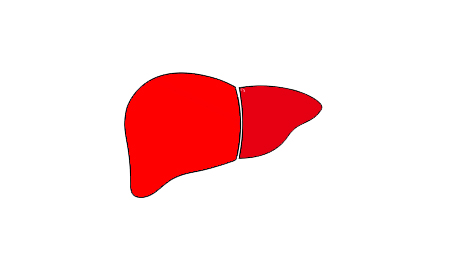
Liver regenerative medicine
Project introduction
Liver disease has a high mortality rate worldwide, but it also causes serious public health problems. Liver transplantation is the last resort for the treatment of end-stage liver diseases. However, due to organ shortage, post-operative complications, immune rejection and other factors, there is an urgent need for new methods for the treatment of liver diseases. Regend's scientists are committed to the study of stem cell-specific hepatic precursor cells in the liver, and at the same time explore their use in liver regeneration, to solve various problems faced in the application process, to provide strong support for the use of hepatic precursor cells in the treatment of liver diseases, so that the "liver regeneration" of Pulmatius in Greek mythology becomes a reality.
-

Assisted reproduction
Project introduction
Infertility is a condition in which women of childbearing age who have normal sexual life are unable to conceive for a long time. Among the various factors leading to infertility, endometrial defect or severe uterine adhesions are common. At present, there is no effective treatment. Previous studies have found that there are a certain number of adult uterine stem cells in endometrial epithelial tissue of women of childbearing age. During the normal menstrual cycle, endometrium periodically falls off, and adult stem cells play a role in reconstructing endometrial epithelium. Regend scientists use regenerative medicine technology and means to isolate and culture adult stem cells in vitro to study their regenerative repair effect on endometrial epithelium, which is expected to repair endometrium, treat endometrial defect and uterine adhesions caused by endometrial defect.
-
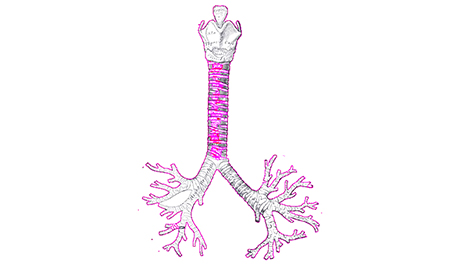
Artificial trachea
Project introduction
Partial tracheectomy is often caused by tumors, physical and chemical factors. After that, some tissue engineering products are needed to reconstruct the trachea. At present, medical macromolecule materials are mostly used to form reticular tubules. Although they have excellent biocompatibility and stable structural characteristics, they can match the adjacent tissues and withstand pressure from surrounding tissues, problems such as incomplete epithelialization of the lumen and granulation formation in the tracheal cavity need to be solved urgently. To solve these problems, Regend scientists are committed to innovative research that combines airway adult stem cells with existing artificial trachea, so that regenerative medicine technology and tissue engineering technology can be organically integrated to solve major problems in the field of artificial trachea, and further promote the application of artificial trachea.
| |CN
|CN
 |CN
|CN
